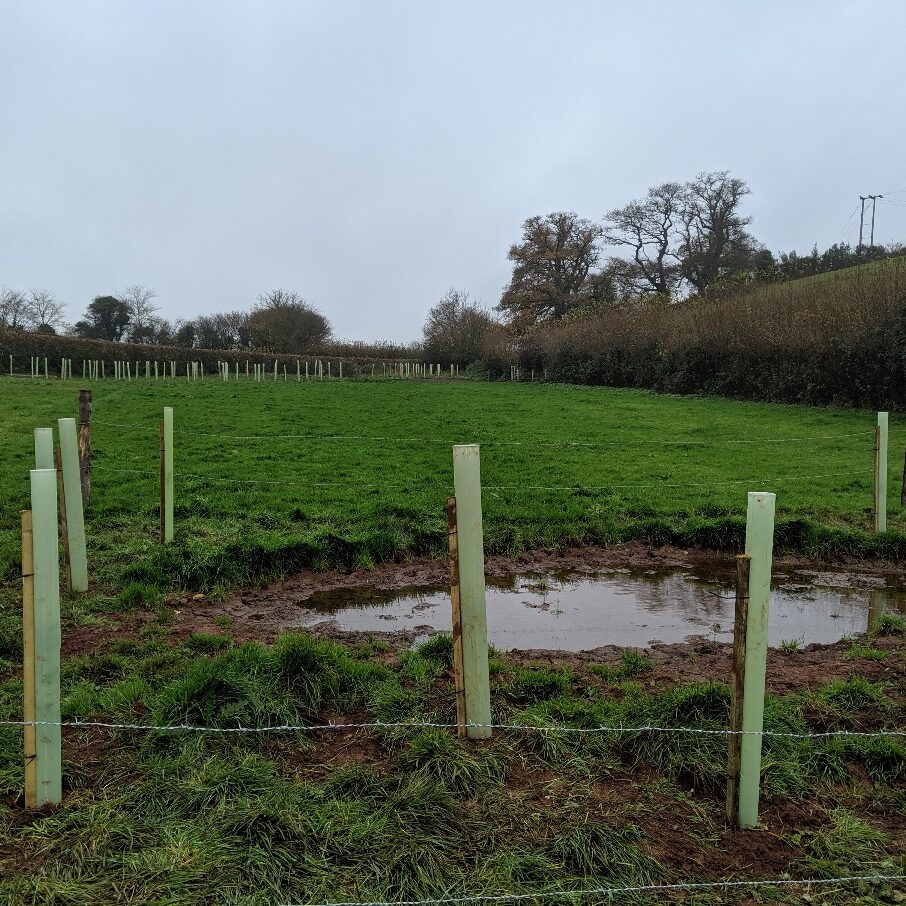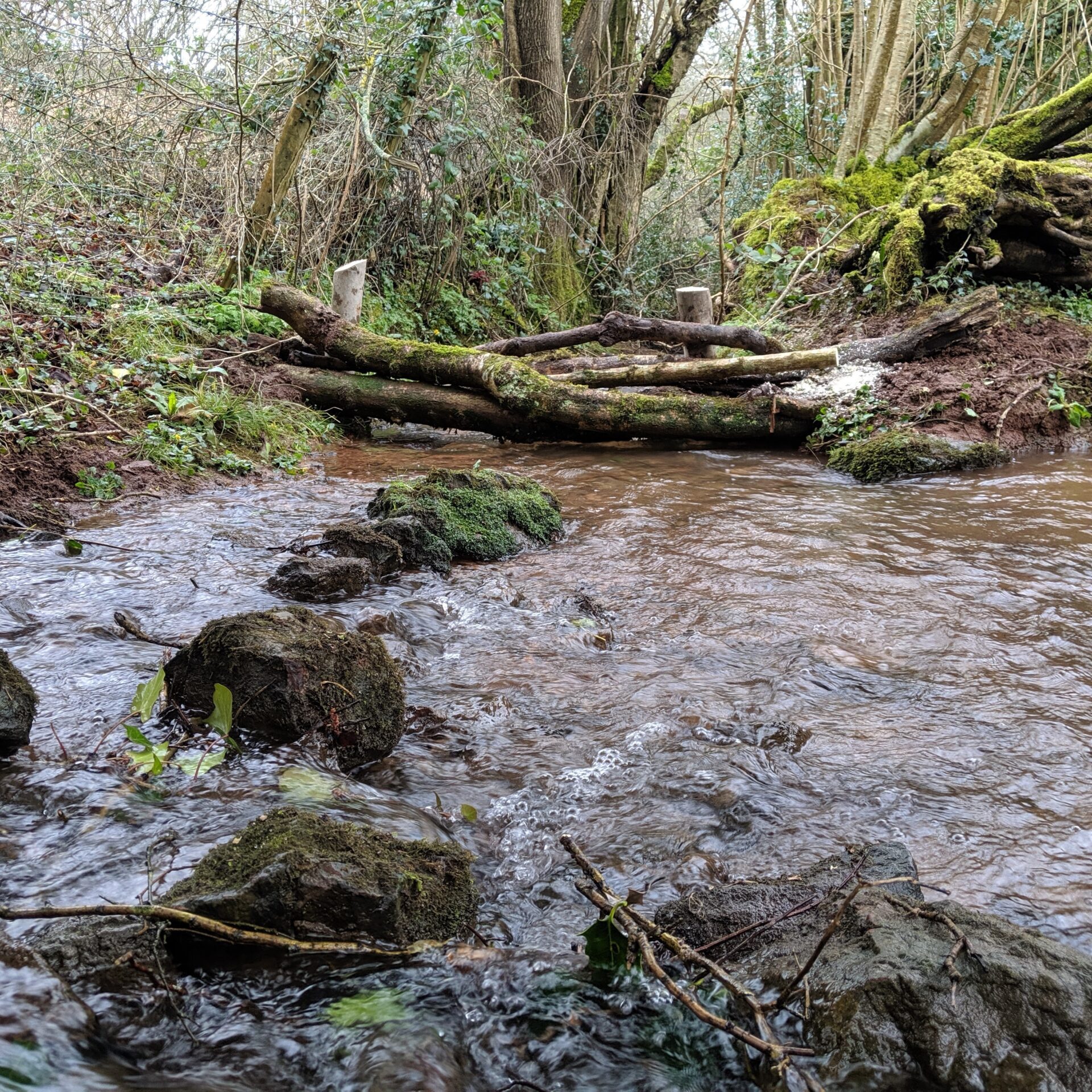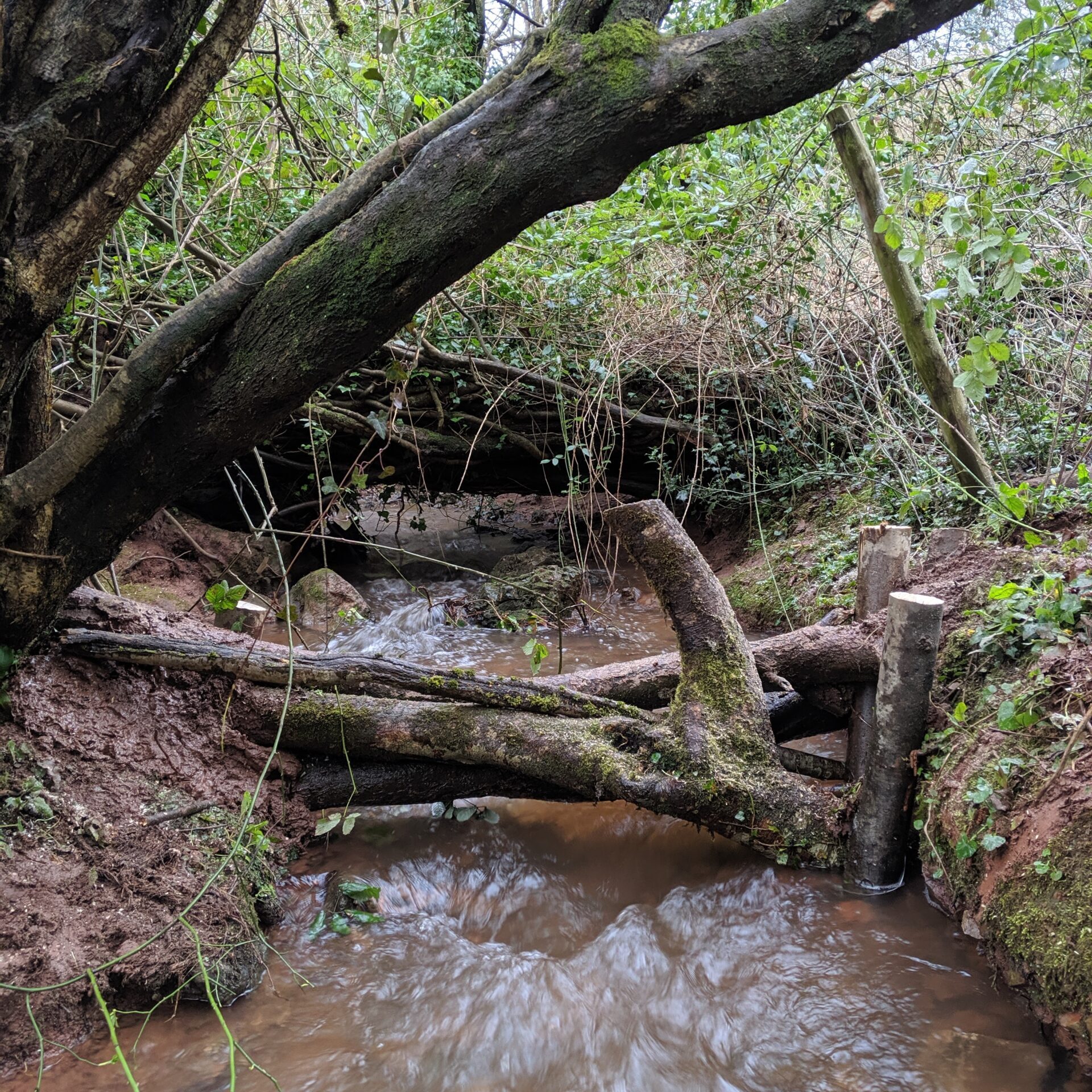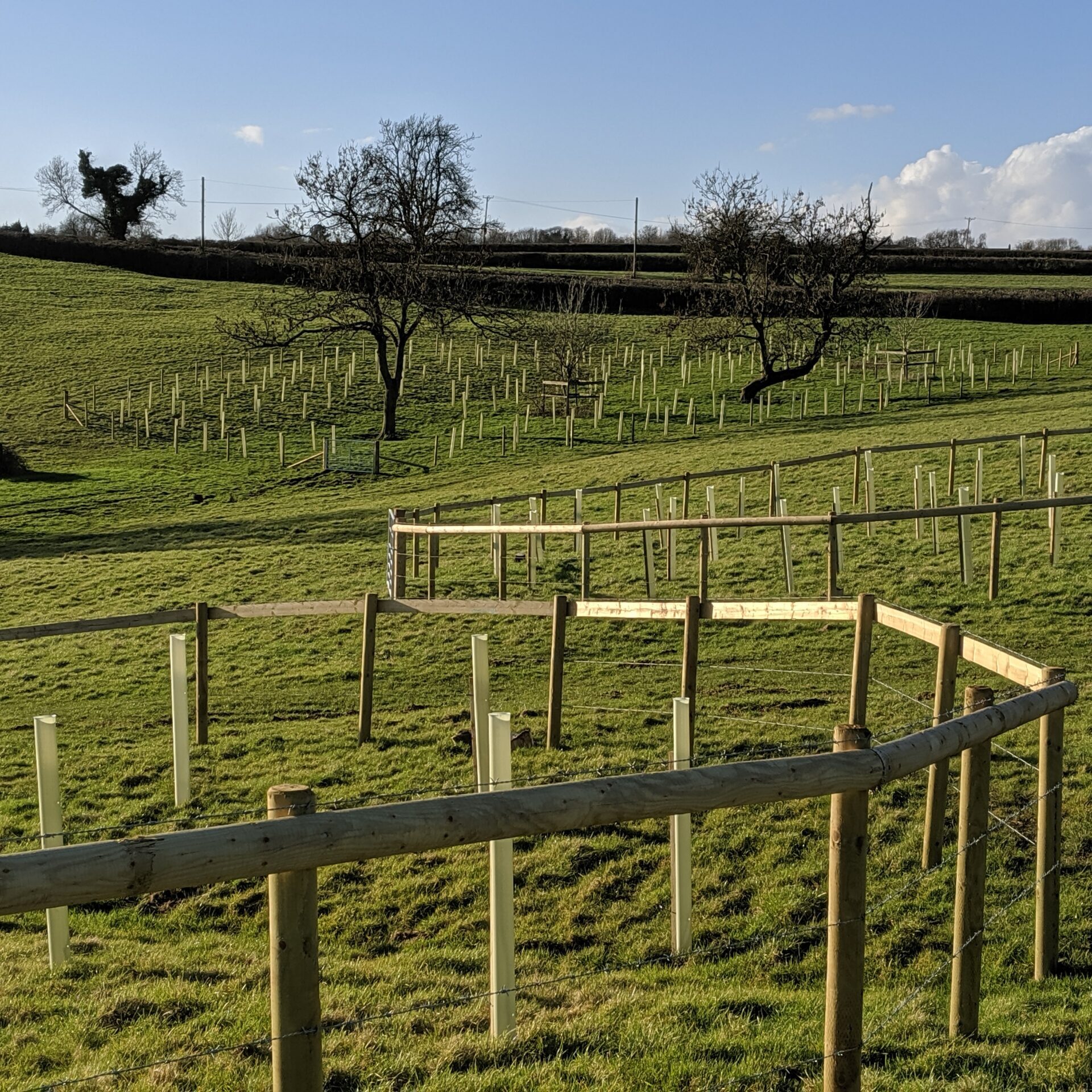Much of the UK has experienced an increase in flooding in recent years, leading organisations to realise that hard engineering alone is not the answer. Natural Flood Management (NFM), the soft engineering of water on a landscape scale, are now understood to be essential in order to contribute towards “slowing the flow”.
NFM projects are designed to complement existing flood projects that are being delivered by other organisations already working in the area. Natural Flood Management involves working with nature to try and ‘slow the flow’ of water through a landscape. There are a variety of techniques and land-based interventions that can be used, including; subsoiling, cross drains, earth bunds, leaky ponds, cover crops, hedge planting, tree planting and grass buffers.
BART work in partnership with the Environment Agency, local authorities and landowners to deliver NFM surveys and practical interventions around the Bristol Avon catchment.





